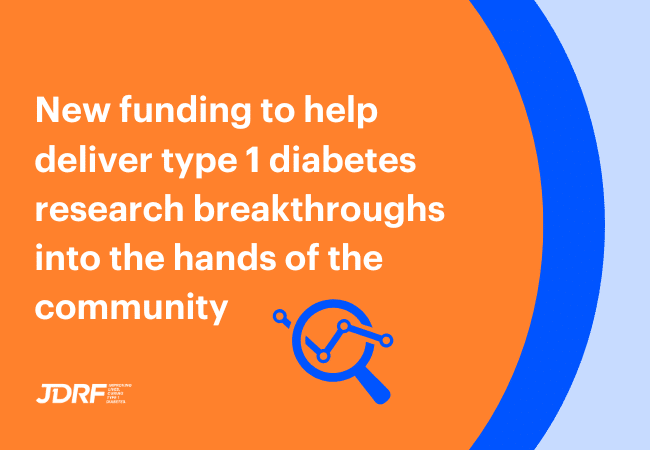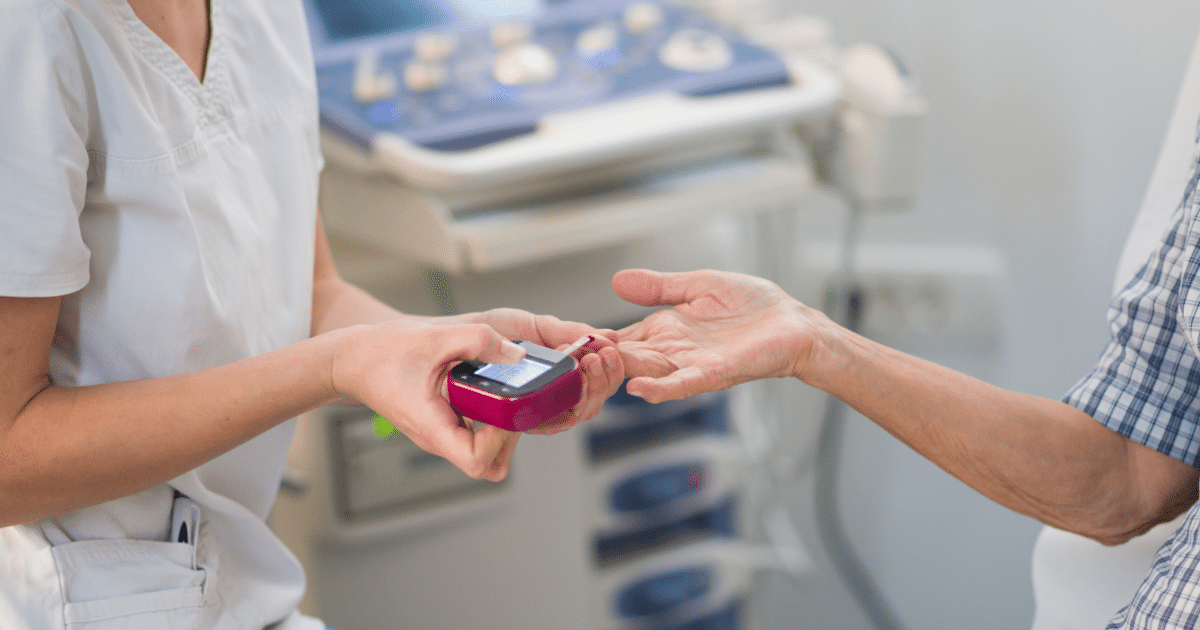Tips to help your child start managing their T1D

As parents, it’s our job to help our kids grow up to be independent, capable and flourishing adults. But how does this work when children have the added responsibility of managing type 1 diabetes (T1D)? How do we slowly transition T1D management skills to our child while keeping them healthy and focused on their most important role – being a child?
This can be one of the trickiest aspects of T1D management, but with the right support, and lots of love and patience, you can get through this transition phase together.
When to start the T1D management transition process
The transition process will often depend on when your child was diagnosed with diabetes. Usually children who are diagnosed under the age of around 10 will have their parents heavily involved in their day-to-day diabetes management. In children who were a little older when diagnosed, there may be tasks they’ve been doing since the very start – things like finger pricking, giving pen injections, counting carbs – with their parents overseeing.
There’s no right or wrong ways or time for your child to start being more involved in their diabetes care. Type 1 diabetes is a lifelong condition and it would be a mistake to rush your child into doing anything they’re not completely ready for. Remember that being more involved in their diabetes care is only one of the many important skills they’re mastering at this time.
Tip: Be guided by your child and let them set the pace.

How to begin
If you’re both feeling ready, the best place to start is with those regular daily tasks, like finger pricking, doing injections and counting carbs. Slowly offer them the chance to be more involved in these tasks (and even if they say yes, don’t assume they’ll want to do it every time. It’s a process!).
When your child is hanging out with a friend or catching up at a friend’s house, it might be a good time to encourage them to try out their skills in independently managing their diabetes tasks. It’s important they feel supported in managing diabetes away from home, so their confidence can slowly increase. Make sure you’re accessible if they feel uncomfortable or overwhelmed and need your help. Mobile phones make this process much easier – you can easily keep in touch via text message without it being too obvious or taking too much time away from friends.
Tip: To begin with, when your child is getting the hang of managing their diabetes tasks, it will probably be easier for them to focus on it during a quiet catch-up, instead of a big party or activity where they might get too distracted.
Managing the night shift
While children or young people may become confident with managing their diabetes during the day by a certain age, monitoring during the night is usually something a parent will continue to assist with, perhaps indefinitely while they live in the same house.
Correcting low and high blood glucose levels at night is an important part of diabetes management, and your family needs to have systems in place for your child to be safe. If they feel able to take on more responsibility for their management overnight, you will still need to help and support them as they master this skill.
Tip: Remember, it’s normal for interest and motivation to vary as they learn, so this will be a shared task for quite some time.
Dealing with emotional aspects
The transitional phase of responsibility for diabetes care from parent to child can be emotionally difficult. You might experience feelings of:
- sadness that your child is growing up and relying less on you
- fear for their future wellbeing
- concern that your child might not manage their diabetes as diligently as you did as their parent.
Try to focus on the positives and support your child as much as possible. It’s your job as a parent to help your child grow into an adult who doesn’t need to rely on you as much as they did as a child. This is something to celebrate and be proud of as a family.
Finding your groove
You’ll continue to find your way of supporting your young person after they become self-sufficient at managing their diabetes. This might involve helping them with a pump set change, cooking them meals with the carb values labelled, or helping them to purchase or organise their diabetes supplies.
Everything you do as a parent is working towards your young person one day becoming more independent and capable of dealing with the ups and down of life. It doesn’t mean they won’t make mistakes, and it definitely doesn’t mean they won’t ever need your help and support anymore. The love and connection of a strong family has no time limit.
Transitioning to adult healthcare services
As your child becomes a young adult they’ll transition to adult care within the health system. Visit the NDSS Guide to Transition.
Read more:




